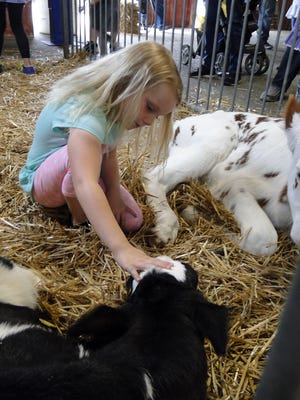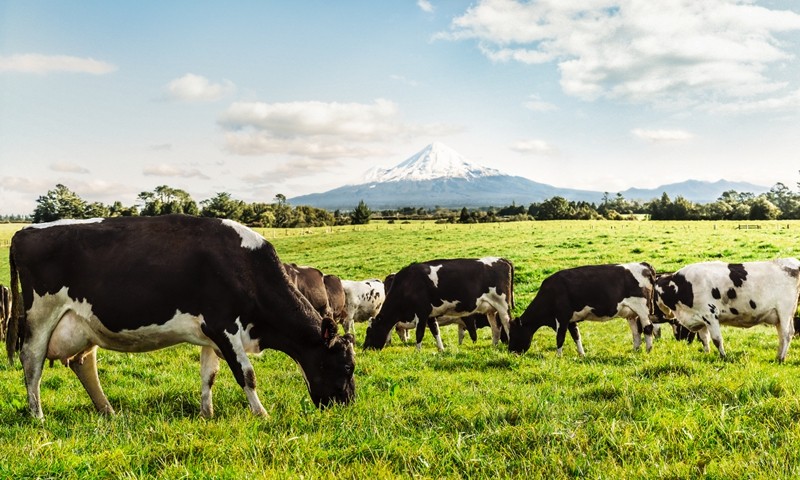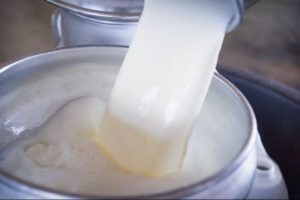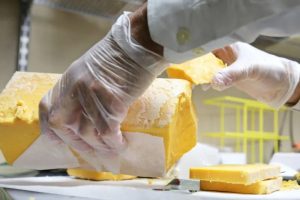
Governor Tony Evers has made continued investment in our dairy industry a priority through his biennial budget proposals and a call for a legislative Special Session in 2020 to support dairy processing and increase dairy exports. He has also encouraged the preservation of our rural communities through efforts like the Blue Ribbon Commission on Rural Prosperity. The Governor recognizes the importance of dairy to Wisconsin’s heritage and economic well-being. I am proud of the Wisconsin Department of Agriculture, Trade and Consumer Protection’s (DATCP) work to serve as a resource to this critical industry as it looks to the future.
As we think about the future of our dairy industry, it’s essential that we engage the next generation. In 2020, DATCP launched the Wisconsin Agriculture Youth Council. Each month, I had the opportunity to engage with the 15 council members as we discussed a variety of agricultural topics, including dairy. Their enthusiasm for agriculture and desire to advocate for the industry was continually inspiring to me.
I am also actively involved in the reinvigorated Wisconsin Agricultural Education and Workforce Development Council through the Wisconsin Department of Workforce Development. I am proud to serve alongside extremely knowledgeable and passionate members from across the agriculture industry, Wisconsin schools, and higher education as we discuss how to recruit and train agriculture’s future workforce. The dairy industry, both on-farm and processing, contribute more than 157,000 jobs across the state.
There are many opportunities for these workers at Wisconsin dairy businesses, which are great contributors in their local communities and some of which are internationally known. The state has invested hundreds of thousands of dollars in dairy processor grants, which DATCP administers directly to dairy processing plants to foster innovation and improve profitability. Recognizing the important opportunities these grants provide, Governor Evers has proposed increasing the amount of available funding.
Wisconsin is also fortunate to be home to the Dairy Business Innovation Alliance (DBIA), a partnership between the Center for Dairy Research (CDR) and the Wisconsin Cheese Makers Association (WCMA), to develop and administer programs providing technical assistance as well as grants to dairy farms and businesses. Dairy-related businesses are benefitting from webinars, grants, and additional resources to contribute to their continuing success.
The future of Wisconsin’s dairy industry also depends on research. The state is investing annually in the Dairy Innovation Hub, which was originally created in Governor Evers’ 2019-2021 biennial budget. The Hub aims to support dairy research and development at the University of Wisconsin campuses in Madison, Platteville, and River Falls. By focusing on four priority areas of stewarding land and water resources, enriching human health and nutrition, ensuring animal health and welfare, and growing farm businesses and communities, the industry is well positioned to meet current challenges and take advantage of future opportunities.
Research through the Dairy Innovation Hub and the Center for Dairy Research will allow Wisconsin’s dairy industry to develop new products to meet the demands of customers around the world. Just last year, despite the challenges presented by COVID-19, trade disruptions, and other factors, Wisconsin’s exports of dairy-related products increased more than 10 percent to $263.4 million. Our dairy-related products are destined for countries around the world, and working together, we can meet the need of each unique marketplace.
While the past year has undoubtedly had a lasting impact on the dairy industry, I hope in June we can all look forward with optimism for the dairy industry. The entire dairy supply chain, from the farmer to the processor to the distributor to the point of sale, are all connected. During Dairy Month, I hope Wisconsinites across the state will take a moment to recognize the great contributions of Wisconsin dairy to our state’s heritage, economy, and, most importantly, our future. Among the many things we have learned from the members of the Wisconsin Agriculture Youth Council, one thing is very clear: the future of Wisconsin agriculture is strong.

























